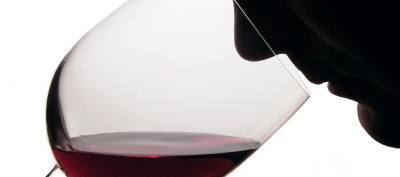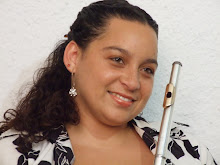These past two weeks, spent in the "Big Apple" have been exciting and fun, but also informative and thought-provoking. The first week was a rollercoaster of meetings: from the League of American Orchestras, Carnegie Halls' Musical Connections professional development sit-in, a brainstorming think-tank with St Lukes orchestra management, to the awesome Corona Youth Music Project in Queens and finally drinks with the daughter of Leonard Bernstein: Jamie Bernstein. What a week!!
The second week was a fun whirlwind of visits to various programs in New York: Union City Music Project, Third Street Music School Settlement and the Washington Heights and Inwood (WHIN) Music Project.
I learnt a great deal about some of the amazing work these organizations are doing in communities, what goes into developing these programs, and the planning, strategizing and hard work it takes to start and maintain these programs. The leaders and staff of many of these organizations and programs are inspirational, unrelentingly hard working and passionate, as well as humbly and openly willing to share what they have learnt and their "not easy, but very worthwhile" journeys of success. I also learnt about classroom management, being able to transition well when teaching, and about the dynamics of the different kinds of relationships built and interaction within these programs. I learnt about the importance of being able to phrase what you say well and aptly. However, what stood out to me the most, and the phrase that rang like a resounding gong in my head the entire 2 weeks, was "creating a culture".
Grappling with this gigantic, yet subtle concept was an interesting process for me, because the 'culture' of an organization or program is not a tangible thing. You will not find it on the webpage, in biographies or necessarily in the written mission, vision or goals. Yes, it might be described to a certain extent or you might read a semblance of what the organization would like its culture to be, or would like you to think its culture is. But you will not know until you walk into their building, and meet and engage with the people who are part of the organization and who spend their time there. This might not even be enough, you might need to immerse yourself in their world to understand what it is all about. However, whether we like it or not, first impressions are lasting impressions - although, they can also be very subjective impressions.
What I learnt was that every organization had a different feel, a different atmosphere, different kinds of people...a different culture. I thought of this image: wine tasting. I am not at all an expert at wine-tasting or in this field of social change through music, but certain things are not as much about expertise, as they are about impressions, intuitive perception, engagement and being able to candidly draw the invisible lines between these through common sense.
So, wine tasting...there are 4 stages: the appearance (label, glass, colour etc); the aroma (in glass); sensations (in mouth) and aftertaste (finish). These elements are combined to establish different properties of the wine such as character, potential and possible faults. Wine, unlike most other beverages has hidden subleties, nuances and complexities.
The appearance (and price) tells you about what you could expect from the wine. The power of suggestion is interesting, and the role it plays in our expectancies, as well as the assumptions we make, and conclusions we draw. This stage of wine tasting, I would correlate to what you read/research about organizations and the things you hear about organizations or people. Here, I learnt to not ‘judge a book by its cover’ or even by your expectations. We always need to dig deeper.

The aroma or ‘smell’ is closely linked to tasting the wine, and is your initial detections and exchange with the wine and its flavours and accents. This I would link to your initial interaction with people/person from the organization, before meeting them. This connection could be via phone, as a conversation or interchange of messages via e-mail. This is your pre-first impression, and could either present itself as an aroma or an odour, but until you taste it, you will not know for sure.
The third stage is sensations or tasting, and is when you will experience variations of sweetness, dryness, acidity or astringency. This, to me, is like your first actual meeting or experience with organizations, programs or people. There is something fascinating about this aspect of your impression - when a wine is abit off, not completely amazing, mediocre or not properly put together or confusing and difficult to place, you cannot always put your finger on why or what it is thats not quite right or doesn’t quite fit, or what the taste and accent at its core is. Its often too subtle. However, when a wine is good, from the inside out, at its core, a great blend and effective taste, well-crafted, thought-out with great care and genuine - you know it. And you don’t just know it - you feel it - beyond tasting or smelling it - you feel it in your heart, your soul and everything in you says, “Yes!”
We all have moments like these in our lives - when we meet a special person, or when we know we are in the right place, at the right time and doing what we were born to do. Sometimes its the moment that you realise that you are living a dream of yours, or a musical moment on stage that makes your heart explode and eyes shine with joy or a song that moves you to tears. It could be when you unexpectedly see beauty - beauty in places or people. Beauty in a child - in their smile, their joy or something spontaneously endearing that they do or say. Or sometimes its that moment when you are doing what you do everyday, and you realize that if given the choice, you would not be anywhere else in the world or do anything else- because what you are doing really matters - to you, and those around you.
This sensation and first experiential stage of your impression is just that - your first impression, your first sip. Most times you need to drink in and be soaked in the experience more to completely understand the subtle undertones, shades and intricacies. Even so, your initial impressions are valid and often led by the heart - and your heart often does say yes when it identifies greatness. Because when things are ‘good’ at their core and have the right intent - you know it, its undeniable. This goes for people as well - when you meet people who have their hearts in the ‘right’ place - you know it. This transcends what they say - because words can be deceiving - but you see this is what they do, and even more in how they do things and interact. And to me, this speaks about doing things for the right reasons, that you love/truly care about the people/children you do them for and that you realise that its not about you, your ego or building your ‘empire’ or reputation - but about living your life to help improve the lives of others.
 Finally aftertaste is the overall impression and balance that lingers after tasting the wine. An indication of a good quality wine is a long, pleasing aftertaste. Its the same in life - there are people, places, things that make lasting and impactful impressions on our lives. These last in our memories and hearts because there was often something real, genuine and sincere about them.
Finally aftertaste is the overall impression and balance that lingers after tasting the wine. An indication of a good quality wine is a long, pleasing aftertaste. Its the same in life - there are people, places, things that make lasting and impactful impressions on our lives. These last in our memories and hearts because there was often something real, genuine and sincere about them.
My role is not to criticize, but it is to examine what I experience - to begin to analyze my expectations, my impressions, the things my hearts said “Yes!” to, and things that disappoint me. This process is important because only in doing this can I begin to build an image in my mind of what I would like to help build - and how I would like to ‘make a difference’ - a real difference, not just the appearance of a difference. By doing this - honestly and candidly - I also hold a mirror up to myself, and face, as well as grapple with, my own intentions, the impressions that I create, my ‘appearance’, the initial ‘smell’ I give, the ‘taste’ or experience I allow and the aftertaste I leave.

The questions is: are we intentional about these things? When you love doing something - you know that you love it - its almost inherent. After this is established, are we intentional about the culture we are creating - whether that is within an organization, institution, program, a group of people or within yourself. This does not just speak about what we present to the world, but what we actually do when doors are closed, and no one is visiting. Or how we truly interact with those who are part of our everyday lives and work. Can we recognize when we are giving off an odour or bad aftertaste? Do we even care? Can we ask ourselves questions like: "Did I even use the right grapes?" or "Are we planting the right seeds?" And are we teachable enough and humble enough to be willing to begin the journey of change if our discovery warrants it. These are difficult questions - questions I pose not just to the world, but to myself as well.
If I truly want to be part of the process of changing the lives of others, I need to be willing to initiate change in my own life or ‘house’ - where it is needed.



